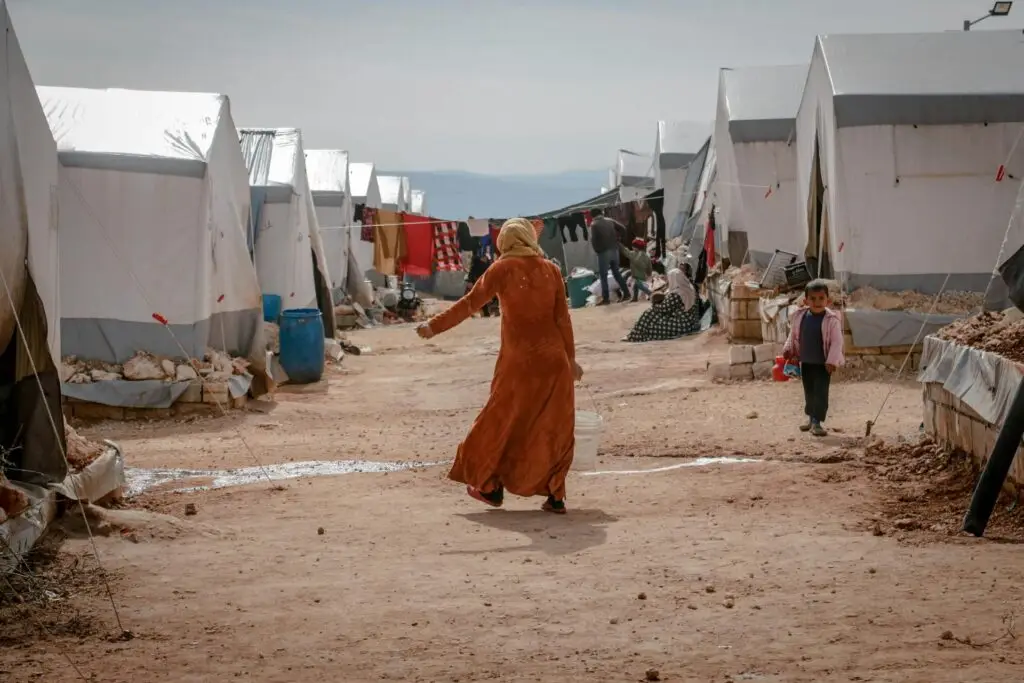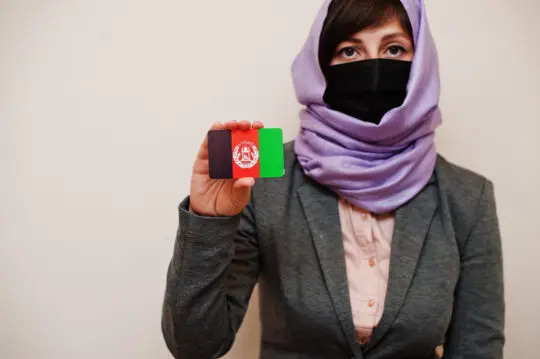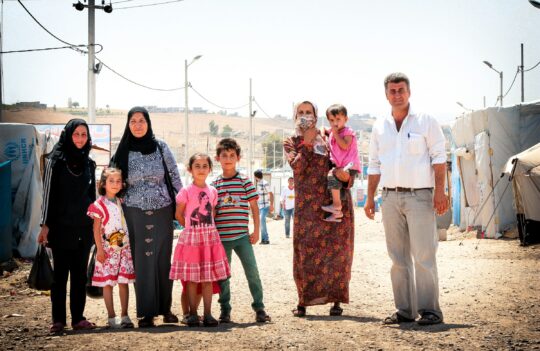Significantly more rejections - hardly any protection left
In October, the BAMF decided on a total of 3,134 Syrian asylum procedures. Only 0.8% of applicants were granted protection status: one person was recognized as eligible for asylum, ten were granted refugee protection, nine subsidiary protection and six a national ban on deportation. In contrast, the BAMF rejected 1,906 initial applications and 12 subsequent applications as manifestly unfounded.
The office justifies the stricter line with thechanged situation in Syria. After the end of the civil war, "no longer in all cases" is there a reason for asylum or a ban on deportation - especially not for people without individual reasons for persecution.
Asylum procedure for Syrians suspended for months
The current high number of asylum rejections can be explained in various ways: One of them is that asylum procedures for Syrian nationals were suspended for the time being following the fall of former ruler Bashar al-Assad.
At the time, the authority justified the measure with the unclear and "dynamic" situation in the country. The political and security situation was too unstable to be able to make legally certain decisions. The basis for this was Section 24 (5) of the Asylum Act.
During this time, only formal procedures were continued - for example, if it was determined that another EU country was responsible under the Dublin Regulation. However, the BAMF continued to decide on applications from dangerous persons and criminals.
Syrians no longer have a blanket right to asylum in Germany
It was not until May 2025 that the Administrative Court in Karlsruhe ruled that the complete suspension of all asylum procedures for Syrians was no longer justified. As a result, the BAMF gradually resumed processing - albeit with stricter standards. Since then grounds for protection have been interpreted much more narrowly and examined more closely according to the individual's living situation and region of origin.
Since the end of September 2025, the BAMF has been regularly deciding on Syrian asylum applications again - especially those from young men who are able to work and traveling alone. According to the authority, this group is considered to be less at risk than others.
German government discusses deportations to Syria
While the BAMF is once again actively deciding on Syrian asylum applications, the German government is intensively discussing possible repatriations. Federal Chancellor Friedrich Merz (CDU) recently called for a resumption of deportations to Syria. "The civil war in Syria is over. There are now no longer any grounds for asylum in Germany, and we can therefore also begin with repatriations," he said at a press conference last week.
Federal Interior Minister Alexander Dobrindt (CSU) also spoke out in favor of repatriations and announced talks with the Syrian transitional government: "We are in the process of reaching agreements with Syria that will actually enable repatriations to Syria."
According to him, people who have committed crimes will be deported first, followed by people without a right of residence. Dobrindt hopes to reach an agreement with the Syrian government before the end of the year.
When is an asylum application rejected?
The Federal Office for Migration and Refugees (BAMF) is legally obliged to examine each asylum application individually (i.e. on a case-by-case basis). It assesses whether and to what extent the applicant is exposed to a specific danger in their country of origin - for example through war, torture, political persecution or inhumane treatment.
An asylum application is rejected if:
- there are no grounds for protection under the Asylum Act (§§ 3-4 AsylG) - i.e. no individual persecution, no danger to life and limb and no other significant threat;
- another EU country is responsible, e.g. under the Dublin III Regulation, if the person was first registered there;
- the application is classified as manifestly unfounded - for example, if the BAMF assumes that the reasons for flight are invented, contradictory or unsubstantiated;
- the reason for protection subsequently ceases to apply, for example if the security situation in the country of origin has improved significantly and there is no longer any individual danger.
In the case of Syria, the BAMF justifies rejections on the grounds that there is no longer a right to protection in all cases following the end of the civil war. Particularly in the case of young, healthy men without individual reasons for persecution, the authority assumes that there is no longer any personal danger that justifies the granting of asylum or refugee protection.

Family reunification is an important issue for many refugees from Syria. Those involved often do not know whether they can bring their family members to Germany or not. There are various options for reunification, from regular family reunification to family reunification.
What does a rejection mean?
Anyone who receives a negative asylum decision is generally considered to be obliged to leave the country (Section 50 AufenthG). This means that the person must leave Germany within a period specified in the decision (usually 7 to 30 days).
After expiry of this period, deportation may be imminent if no further Residence permit or legal protection exists. The decisive factor here is the type of rejection:
- In the event of a simple rejection (§ 38 para. 1 AsylG): The period for voluntary departure is usually 30 days.
- Manifestly unfounded application (§ 30 AsylG) or Dublin procedure: The deadline is only one week (7 days).
What are the legal options?
You can take legal action against a rejection of your asylum application - however, there are different deadlines that must be adhered to. In principle, an appeal against the rejection decision can be lodged with the competent administrative court(§ 74 AsylG). In the case of a simple rejection, the deadline for this is two weeks.
However, if the application is deemed to be manifestly unfounded, the action must be brought within one week and an urgent application must also be filed. The urgent application is crucial because it restores the suspensive effect - this is the only way to prevent deportation from taking place before the court has ruled on the case.
If new evidence or circumstances arise after the rejection - such as a change in the security situation in the country of origin, new threats or serious illnesses - it is possible to submit a follow-up asylum application in accordance with Section 71 AsylG. The Federal Office for Migration and Refugees (BAMF) then examines whether a new asylum procedure should be opened.
Irrespective of this, it is also possible to apply for protection against deportation in accordance with Section 60 (5) or (7) AufenthG. This is particularly possible if a return would be unreasonable for humanitarian reasons - for example due to a serious illness, lack of medical care or the threat of inhumane treatment in the country of origin.
What happens if you do not leave voluntarily?
Anyone who does not comply with the obligation to leave the country can be deported(§ 58 AufenthG). In such cases, there is also the threat of a re-entry ban(§ 11 AufenthG).
If deportation is temporarily not possible - for example due to a lack of travel documents, illness or missing flight connections - a Tolerance permit (§ 60a AufenthG) can be issued. This is not a Residence permit, but provides temporary protection against deportation.
More Syrians return to their home country voluntarily
According to the latest figures from the Federal Statistical Office, immigration from Syria has fallen sharply since the political upheaval. From January to September 2025, the registration authorities registered around 40,000 new arrivals from Syria - almost half less than in the same period last year.
At the same time, the number of Syrian nationals leaving the country increased: around 21,800 Syrians left Germany between January and September 2025. That is around 35% more than last year. This means that net immigration - i.e. immigration minus emigration - fell from 58,500 people in 2024 to around 18,100 in the current year.
According to the BAMF, 2,869 Syrians have also used state return assistance programs to voluntarily return to their home country since the end of 2024.

Section 60 of the Residence Act regulates the prohibition of deportation and offers protection to foreigners who are at risk in their country of origin for various reasons. In particular, humanitarian, health and political reasons are addressed in order to ensure the necessary security for those affected.
Conclusion
Even if the legal situation for Syrian refugees has not fundamentally changed so far, there is a clear trend towards stricter examination practices. The BAMF is once again assessing grounds for protection on an individual basis and is rejecting significantly more asylum applications as manifestly unfounded.
It is therefore important for those affected to adhere to deadlines, seek legal advice in good time and carefully document all relevant evidence. It can also be helpful to strengthen your own residency situation - for example through language skills, work or training. If you have already been living in Germany for some time, you can check whether a Settlement permit or Naturalization is an option.
Despite political debates, one thing remains unchanged: Every asylum application must be examined individually - blanket rejections or returns are not legally permissible.











